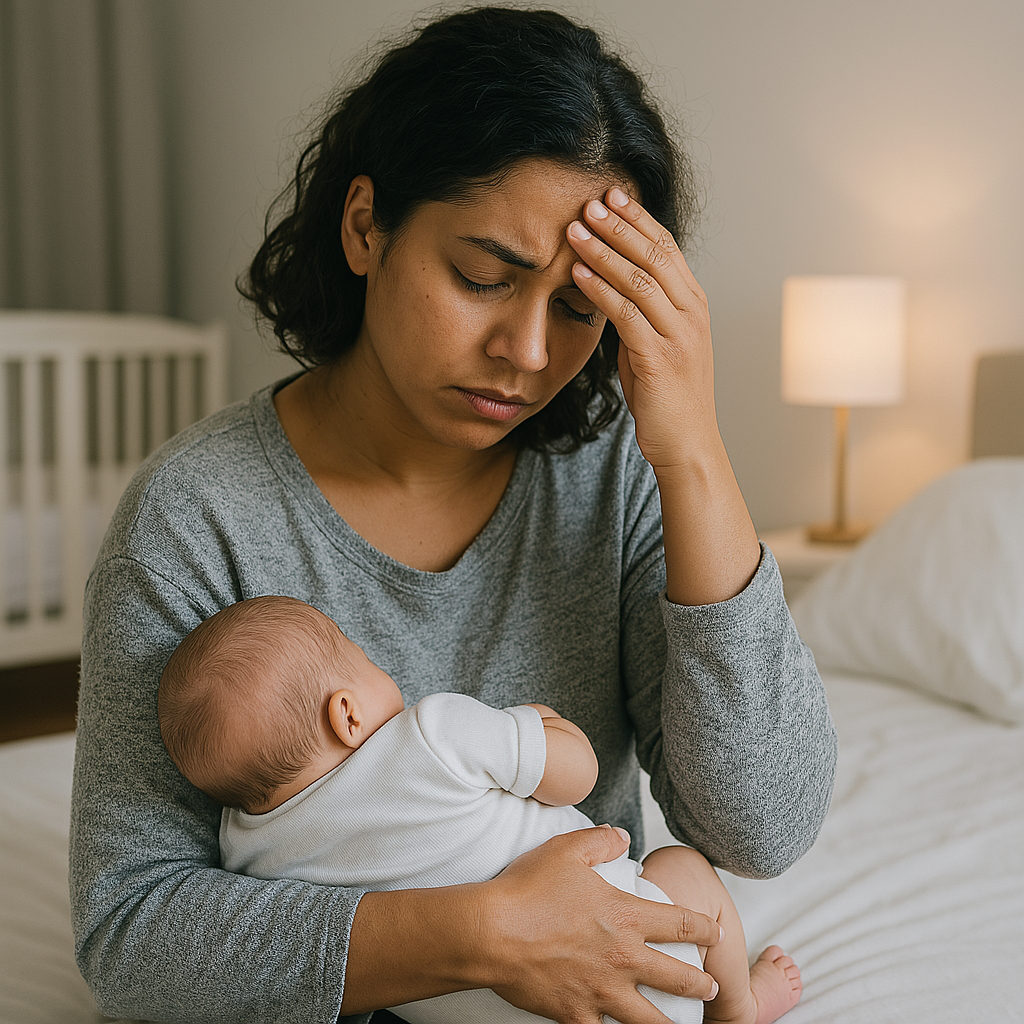
Recognizing the Signs of Postpartum Depression
Recognizing the Signs of Postpartum Depression
Welcoming a new baby into the world is often portrayed as a joyful experience — but for many parents, especially new mothers, the postpartum period can bring unexpected emotional challenges. Postpartum depression (PPD) is a serious, yet common condition that affects 1 in 7 women after childbirth. Recognizing the signs early can help moms get the support they need.
What Is Postpartum Depression?
Postpartum depression is more than just the “baby blues.” While it’s normal to feel overwhelmed or emotional after giving birth, PPD involves more intense and long-lasting symptoms that can interfere with daily life and bonding with the baby.
Common Signs of Postpartum Depression
If you or someone you love has recently given birth, here are some signs to watch out for:
1. Persistent Sadness or Crying
Frequent feelings of sadness, hopelessness, or unexplained crying that don’t seem to improve after a couple of weeks.
2. Irritability or Anger
Increased frustration or sudden anger, even over minor issues, can be a red flag.
3. Loss of Interest in Activities
Things you used to enjoy — like hobbies, socializing, or even caring for your baby — may feel uninteresting or burdensome.
4. Sleep Difficulties
Trouble falling asleep, staying asleep, or sleeping too much, even when the baby is resting.
5. Changes in Appetite
Eating too little or too much, especially if it’s tied to emotional stress.
6. Feelings of Guilt or Worthlessness
Thoughts like “I’m a bad mom” or “I’m failing my baby” are common but harmful symptoms of PPD.
7. Difficulty Bonding with Baby
You may feel emotionally detached or struggle to connect with your newborn.
8. Anxiety or Panic Attacks
Racing thoughts, excessive worry about the baby’s health, or intense fear that something bad will happen.
9. Thoughts of Harming Yourself or the Baby
This is a medical emergency. If you experience these thoughts, seek help immediately by calling a mental health professional or 911.
You Are Not Alone
Postpartum depression is not a sign of weakness or failure. It’s a medical condition that can affect anyone — and with proper treatment, recovery is possible. Therapy, support groups, medication, and open conversations can all play a role in healing.
If you think you may be experiencing PPD, talk to your doctor or a mental health professional. The earlier you seek help, the better for you and your baby.
Support Is Everything
Whether you're a parent or a loved one of someone who recently gave birth, staying informed and supportive can make a world of difference. At MySproutling, we’re not just here for your baby — we’re here for you, too.
